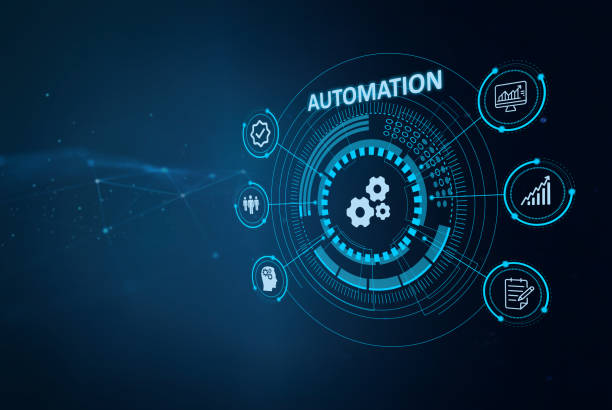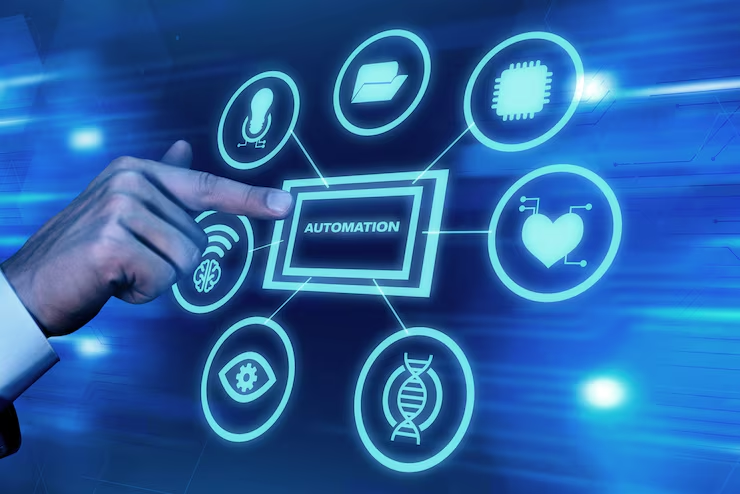Artificial Intelligence (AI) is no longer just a cliché; it has become a driving force in the technology industry, transforming how we interact with devices, manage data, and make decisions. It's no longer a futuristic concept; it's a present-day reality that's reshaping how we interact with technology.
As AI continues to evolve, it has penetrated almost every field of technology, from automation and machine learning to data analysis and robotics. Understanding the role of AI in technology will help us grasp the full extent of its impact and its potential to reshape the future.
AI and Automation: Streamlining Processes
One of the most significant contributions of AI in technology is automation. AI-powered systems have revolutionized industries by automating repetitive tasks, reducing the need for human intervention, and increasing efficiency. In manufacturing, AI-driven robots assemble products faster and more precisely than ever before, while in customer service, chatbots provide instant support to users, saving time and improving customer experience.
Automation through AI has also paved the way for intelligent software solutions that can analyze vast amounts of data in seconds, extract valuable insights, and trigger actions based on those insights. This level of efficiency has enabled businesses to make faster decisions and allocate resources more effectively.
AI in Data Analysis: Extracting Actionable Insights
Data is the lifeblood of the digital age, and AI is the engine that powers data analysis. Traditional data analysis techniques were time-consuming and often unable to handle the sheer volume of data generated today. AI technology, particularly machine learning and deep learning algorithms, can sift through vast datasets to identify patterns, trends, and correlations that would be impossible for humans to detect.
This ability to analyze data quickly and accurately has led to breakthroughs in various sectors, including healthcare, finance, marketing, and logistics. For instance, in healthcare, AI algorithms can analyze medical data to predict disease outbreaks, suggest personalized treatment plans, and even aid in early diagnosis. In finance, AI tools help detect fraudulent activities and guide investment decisions based on real-time market data.
AI and Machine Learning: Enhancing Software and Devices
Machine learning, a subset of AI, has significantly impacted how software and devices learn, adapt, and improve over time. Unlike traditional programming, where software follows a set of predefined rules, machine learning allows software to evolve based on experience. This means that applications can become more accurate and efficient as they process more data, leading to smarter solutions.
AI-driven technologies like recommendation systems (Netflix, Amazon, or Spotify), predictive text input, and virtual assistants (like Siri and Alexa) are all examples of machine learning in action. These systems learn from user behavior, preferences, and feedback to provide more relevant suggestions and personalized experiences.
AI in Robotics: The Rise of Intelligent Machines
AI has also brought a new level of intelligence to robotics, enabling machines to perform tasks that require human-like reasoning and decision-making. In industrial settings, AI-powered robots are improving productivity by handling complex manufacturing processes, performing quality control, and reducing errors. In fields like logistics and warehousing, AI robots are transforming supply chains by managing inventory, sorting packages, and even delivering goods to customers.
Humanoid robots with AI capabilities are also becoming a reality, capable of understanding and responding to human emotions, making decisions based on data, and interacting naturally with people. While still in the early stages, these robots hold promise for applications in healthcare, elder care, education, and beyond.
AI and Cybersecurity: Strengthening Defense Mechanisms
As cyber threats become more sophisticated, AI plays a crucial role in strengthening cybersecurity measures. AI systems can analyze network traffic, identify patterns that indicate potential threats, and respond to them in real-time. Machine learning algorithms help in predicting new malware attacks and developing strategies to counteract them before they cause harm.
The use of AI in cybersecurity goes beyond just reactive measures; it enables proactive defense strategies. AI-powered security tools can identify vulnerabilities in software systems, patch them before they're exploited, and continuously learn from new threats to improve defenses.
AI and IoT: Creating Smart, Connected Systems
The integration of AI with the Internet of Things (IoT) has created smart, connected systems that enhance the functionality of everyday devices. From smart homes to smart cities, AI-powered IoT devices can collect data, analyze it, and take actions without human intervention. For example, smart thermostats learn a user's preferences and adjust temperatures accordingly, while AI-enabled traffic systems optimize routes to reduce congestion in real-time.
This combination of AI and IoT is driving the development of more efficient energy systems, better healthcare monitoring solutions, and innovative manufacturing processes, all of which contribute to smarter, more connected communities.
Ethical Considerations and the Future of AI in Technology
While the impact of AI on technology is largely positive, it also raises important ethical and societal questions. Issues like data privacy, algorithmic bias, and the potential for job displacement are areas of concern. As AI continues to grow, it’s essential to develop ethical frameworks and guidelines to ensure that this technology benefits society as a whole.
The future of AI in technology holds immense possibilities. We can expect advancements in fields like autonomous vehicles, AI-driven drug discovery, quantum computing, and even space exploration. AI’s role in technology is not just about enhancing existing systems; it’s about pioneering new ones that redefine what is possible.
AI is no longer just a buzzword; it's a fundamental force shaping the technology landscape, driving innovation, improving efficiencies, and opening up new avenues of possibilities. Its role in automation, data analysis, machine learning, robotics, cybersecurity, and IoT is transforming how businesses operate, how decisions are made, and how we interact with the world. As AI continues to advance, it's essential to embrace its potential while addressing its challenges to ensure a future where AI benefits society as a whole.







